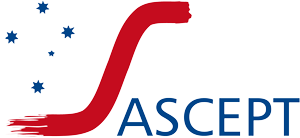| 0 Items |



Support
If you have a question regarding any of our products or website please check the Frequently Asked Questions below as there may already be an answer available.
We provide IT support for all our electronic products on Monday to Friday between the hours 9am and 5pm (South Australian Central Standard Time).
To access support please contact us by using the form on our contact page. You can also email us at techsupport@amh.net.au or call on +61 (0)8 7099 8800.
Frequently Asked Questions
AMH general information
AMH's sole objective is to improve the quality use of medicines in Australia. We aim to do this by providing an evidence-based resource that is concise and easy to use for busy practitioners, but which contains the key information required for better drug treatment and prescribing choices.
Content is originally researched and written by our staff editors, all of whom have minimum qualifications of a degree in pharmacy or medicine, and is subject to peer review by Australian experts and practising health professionals from across the country (specialists, general practitioners, nurses, pharmacists). We follow strict and robust editorial processes.
We are independent of government and industry and do not accept advertising, sponsorship or editorial input from outside sources. Our owners are three respected Australian professional organisations - the RACGP, PSA and ASCEPT - and any profits earned thus contribute to efforts to improve healthcare standards within Australia.
AMH is quick and easy to use, with chapters arranged according to organ system and therapeutic use, and a user-friendly index - look up disease, drug class, generic or brand name of medicine. Substantial cross referencing assists navigation.
The content is structured as follows:
Chapters: Bring together therapeutic information and related drugs and drug classes. Nested documents keep common information together, enable comparisons and reduce repetition; cross references link relevant information. Practice points give tips and advice.
Therapeutic Information: Summarises evidence and clinical practice for a condition and gives context for drug treatment. Discusses and compares the role of different classes and individual drugs in treating the condition.
Class Statements: Provide information common to drugs of the same class, or for the same indication. Most practitioners know how difficult it is to find useful comparative drug information. AMH class statements display information common to each member of a class (e.g. Proton pump inhibitors) in one place and allow comparison of drugs within a class, eg for efficacy and safety. Sometimes a class statement discusses several subclasses of drugs, to enable comparison between classes (e.g. the NSAIDs class discusses non-selective and selective (COX-2 inhibitors) NSAIDs). In some class statements, comparative information is presented in tables for easy comparison.
Drug Monographs: Contain specific information for individual drugs. Most drug monographs occupy less than an A5 page, and contain brief, useful summaries of mode of action, indications, precautions, adverse effects, patient counselling points, practice points, dosage and products (brand names). AMH drug monographs go much further than the approved Product Information (PI) for each drug. We select and integrate information from the most reliable sources including local and overseas PIs and recent review articles published in reputable medical journals, and complement this by appropriate literature searches, e.g. Medline, Cochrane, CADTH and AHRQ assessments, etc.. High quality, evidence-based, transparent and preferably Australian consensus documents and clinical practice guidelines are also used when available. As well as marketed indications (i.e. approved by the TGA), AMH drug monographs also include accepted indications, where there is appropriate scientific evidence and/or broad clinical consensus to support their use. AMH also canvasses unanswered questions - keeping users abreast of current opinion when knowledge about a drug or treatment is limited, or when evidence has emerged which raises doubts about currently accepted information.
Appendices: Include drug interactions, specialised drugs and late additions, laboratory reference ranges and a key to the abbreviations we use throughout AMH. The substantial interactions section within AMH focuses on those considered to be established and of clinical importance or, if theoretical, with potential for serious clinical consequences. This section also includes background information, essential for practitioners to view potential interactions in a clinical context, and useful practical advice for managing specific interactions.
For items that are in stock, your order is generally dispatched the next day and can take 1–3 business days to arrive if you are in a metro area or 2-7 business days if your location is outside of a metro area.
Rural and remote areas may experience extended delivery times.
Express postage and international postage options are available at additional cost. Please contact AMH if you would like a quote for these services.
Orders for the AMH book that are placed during the pre-publication period (from mid-November) are dispatched when the books are received from our printer around mid-January. Orders are then shipped and usually arrive by the end of January.

